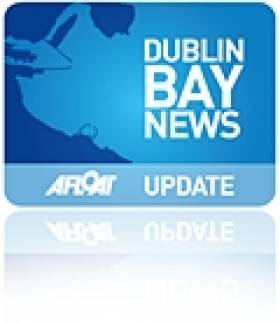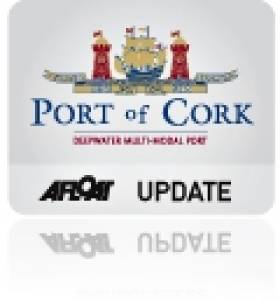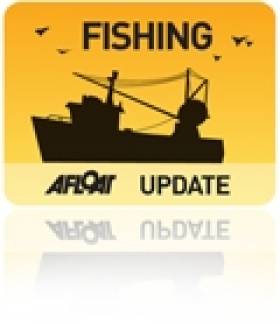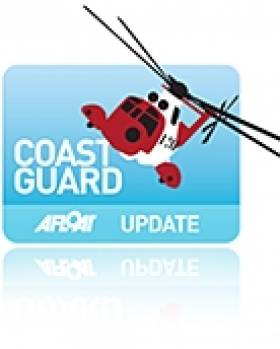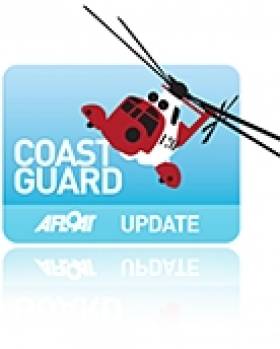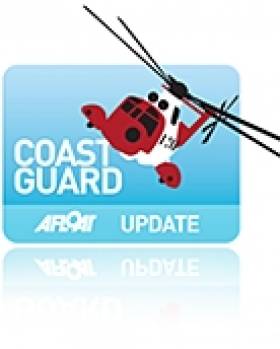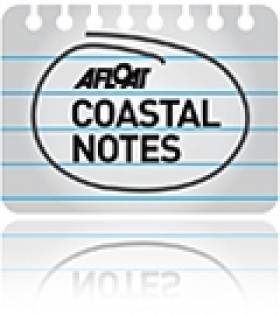Displaying items by tag: consultation
DCC Votes Tonight on Clontarf Flood Defences
#DUBLIN BAY NEWS - BreakingNews.ie reports that Dublin City Councillors will vote tonight on whether to give the green light to the controversial flood defence plan for Clontarf.
Thousands of people have held protests in the north Dublin suburb over recent weeks to show their opposition to the plan, which involves mounds or walls up to and above 7ft high, arguing that the council did not allow for any public consultation.
As previously reported on Afloat.ie, the Irish Sailing Association has urged DCC to defer the vote, which has also faced strong opposition from local business owners.
Port of Cork to Submit New Container Terminal Plans
#PORT & SHIPPING NEWS - The Port of Cork is scaling down its plans for a new container terminal in Ringaskiddy, according to the Irish Examiner.
The new plan is "significantly scaled back" from the €220 million containter terminal proposal for Oysterbank, which was rejected at appeals stage two years ago.
Port officials hope to submit the new application under the Strategic Infrastructure Act, which means the decision will be made by An Bord Pleanála and not Cork County Council.
Officials are already in consultation with the planning board and interest groups around Cork Harbour to eliminate any issues before proceeding with the new scheme, which will be half the size of the previous plan and will involve less land reclamation.
Expected upgrades to the roads infrastructure in the area will also have an impact on the new proposals.
The €100 million plan would be constructed over four phases, to be fully operational by 2020.
The Irish Examiner has much more on the story HERE.
Decision on Castlemaine Fishing 'A Matter of Urgency'
A decision on the reopening of Castlemaine Harbour to wild salmon fishing will be made "as a matter of urgency", says the Department of Communications, Energy and Natural Resources.
The Kerryman reports that the department has confirmed 25 submissions were received during a 30-day consultation after plans were announced to reopen the harbour to commercial fishing in May.
Local fishermen have welcomed the move, though angling and conservation groups have voiced their opposition, with Guy Buxton of the Kerry Anglers' Federation saying that the reopening "could not be justified" on any grounds.
'Grave Consequences' If UK Coastguard Stations Close Says Union
Union leaders and seafarers have spoken out over the proposed closure of coastguard stations across the UK as a parliamentary committee begins its inquiry into the cutbacks.
Northern Ireland's only full-time search and rescue centre at Bangor is one of 11 stations under threat of closure under plans spearheaded by Shipping Minister Mike Penning to streamline Britain's coastguard network down to just seven bases.
According to the Belfast Telegraph, officials from mariners' union Nautilus International told MPs at the Commons Transport Select Committee that there should be an "absolute minimum" of 11 stations across the UK, lest there be "grave consequences for safety in UK waters".
British Prime Minister David Cameron has promised to rethink the proposed reforms if they pose any threat to safety at sea. The Labour Party has already branded them as "ill-thought-out madness".
The public consultation on the proposed changes is set to close on 5 May.
Possible Rethink on UK Coastguard Cutbacks
The British government could be ready to change its plans for the streamlining of the UK coastguard service.
The Belfast Telegraph reports that while there will be no turning back on reforms, concessions such as closing fewer stations and keeping more open 24/7 are being considered - which could save Northern Ireland's only full-time coastguard base from the chop.
The centre at Bangor was earmarked for scaleback or closure under plans proposed by Shipping Minister Mike Penning, But he was forced to extend the consultation period, with a spokesperson saying that "the government is committed to taking all points of view into account before decicing how best to proceed".
Shadow Shipping Minister Jim Fitzpatrick said: “We were concerned about the level of cuts initially proposed and are pleased that the Government appears to be reviewing its plans."
The Belfast Telegraph has more on the story HERE.
Loss of Bangor 'Would Jeopardise Air Rescues'
Ireland's free provision of air-sea rescue services to Northern Ireland could be in jeopardy if the Bangor coastguard centre is closed, a DUP MP has warned.
In today's Belfast Telegraph, Strangford's Jim Shannon said that loss of the cross-border relationship would "most certainly end in loss of life".
Shannon reiterated that the Bangor centre is not only responsible for Northern Ireland's coastline but also its inland waterways and loughs, and mountain areas such as the Mournes.
Merseyside MP Bill Esterson is also quoted as warning that his local coastguard staff "don't feel equipped to look after Northern Ireland" if services are consolidated in Liverpool.
Shipping Minister Mike Penning gave his assurance that coastguard staff would not be victimised if they submit their views to the open consultation, which has been extended to 5 May.
Renewable Energy 'Milestone' for Northern Ireland
The UK's Crown Estate has announced a consultation on making areas of Northern Ireland's sea bed available for renewable energy projects, Business & Leadership reports.
The consultation process will inflence leasing rounds for offshore wind and tidal energy projects in September this year, with the potential for development rights to be awarded as early as spring 2012.
Junior Minister Robin Newton commented at yesterday's launch event in Belfast: “Today marks a major milestone in the development of marine renewable energy in Northern Ireland waters."
Energy Minister Arlene Foster added that Belfast harbour "is well placed to become a major offshore logistics centre in the rapidly expanding offshore wind sector".
Business & Leadership has more on the story HERE.


























